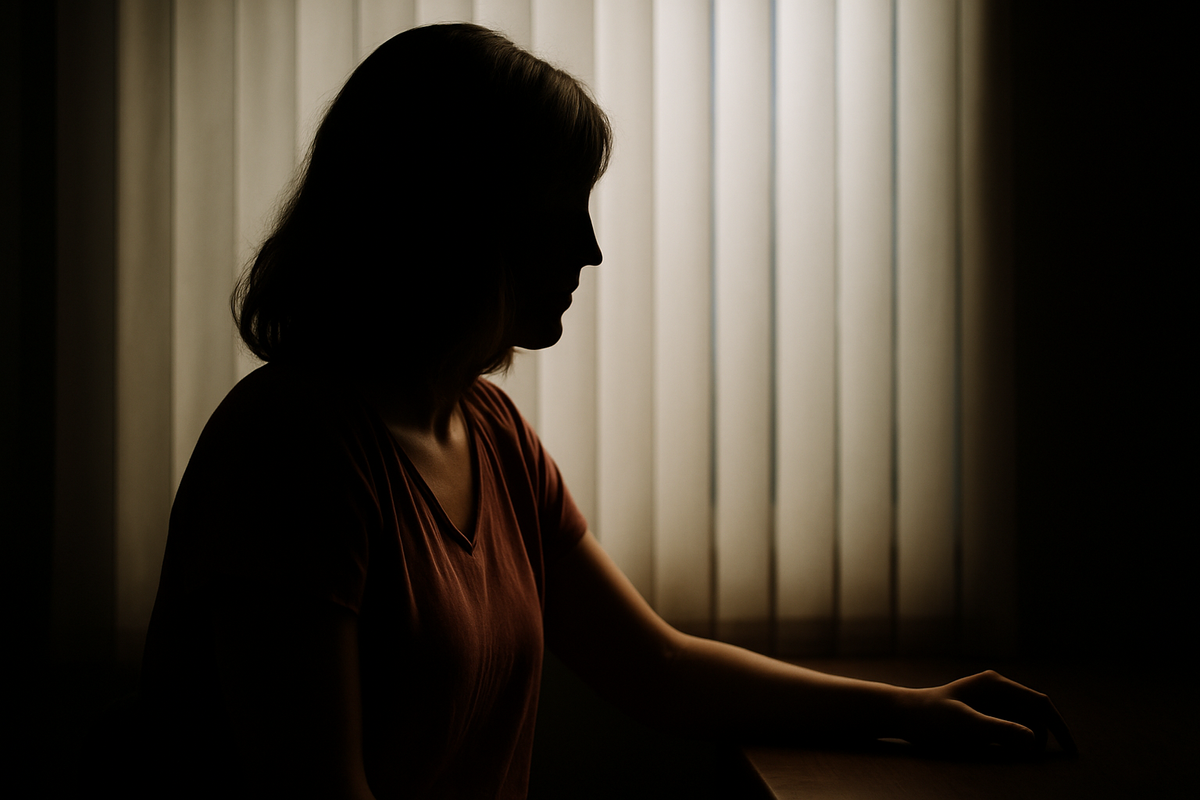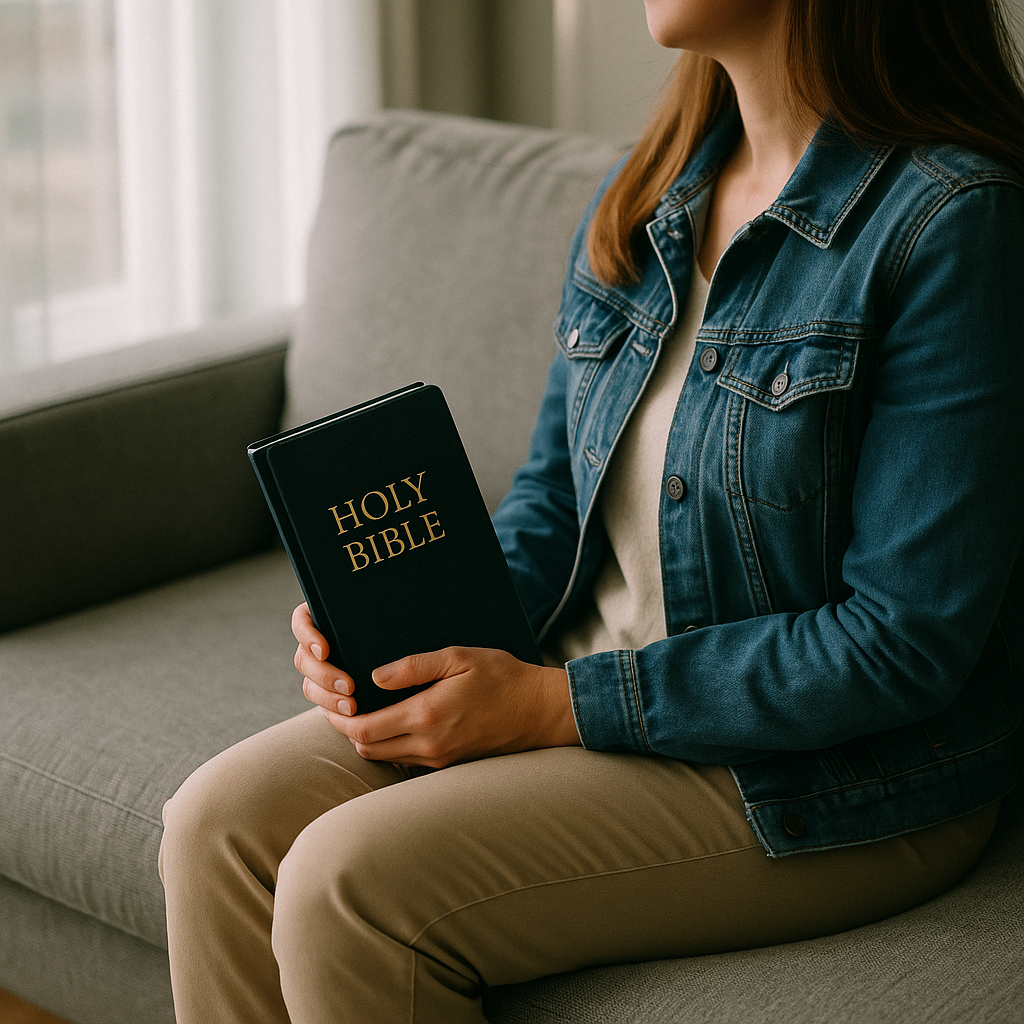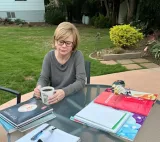Interview – Anna on Walking Through Divorce with Faith
Anna shares candid reflections on divorce and faith: how she clung to hope when life fell apart. Read her powerful story of resilience and renewal.

When Anna’s husband left their marriage, she found herself standing alone in a house that had once felt like home. In the months that followed, she wrestled with betrayal, grief, and a faith she feared might crumble. Today, Anna shares fifteen questions and candid, in-depth answers about her journey through divorce—so that any woman walking a similar path can find honest guidance and quiet hope.

Q1: Tell us about your life before the divorce.
Anna: I met Mark in art school—we bonded over late-night sketch sessions, hummed hymns at campus coffee shops, and dreamed of a family that would center our faith. After graduation we married, bought a fixer-upper, and filled it with DIY projects and newborn laughter. Our routine felt sacred: Sunday mornings in church, weekday dinners shared over Scripture, and whispered prayers before bedtime. I never doubted we’d grow old together because our vows were rooted in prayer. Even when tensions flickered, I assumed our love was unbreakable. Looking back, I realize I leaned on our routines more than on God’s grace alone.
Q2: When did you first sense that something was wrong?
Anna: It wasn’t the argument over money or the missed anniversary date—it was the silence. One evening, I poured tea and waited for Mark to sit with me on the porch. He never came. A week later, I found my journal unopened on his side of the bed. Simple rituals—praying together, sharing highs and lows—had evaporated without notice. I asked, “What’s going on?” He said only, “I need space.” My heart sank. The man who once held me through every storm was retreating. That quiet pull-away felt worse than any harsh word—it was the beginning of an unspoken goodbye.
Q3: How did you react when you realized divorce was imminent?
Anna: Shock washed over me first. I remember sitting on the floor of our bathroom, the hum of the dryer in the next room, and thinking, “This can’t be real.” Then anger flared: at him for leaving, at myself for missing the signs, and even at God for letting this happen. I lashed out in texts and tearful phone calls with friends. But beneath the rage was a deeper panic—fear that my identity, hopes, and dreams were unraveling. In that raw moment, I realized healing wouldn’t start until I traded my anger for honest questions: “Where is God in this pain?” and “What do I truly need now?”
Q4: What emotions overwhelmed you in the early days?
Anna: Shame charged every thought—how could I, a Christian wife, fail at my most sacred calling? Grief gripped my chest whenever I passed our empty bedroom. Loneliness settled in every meal eaten alone and every silent Sunday. Then came relief tinged with guilt: relief that the underlying tension was out in the open, but guilt at feeling a strange freedom. On some days, I swung from anger to numbness to brief moments of peace, only to tumble back into tears. I discovered that grief isn’t linear; it’s a spiral that visits unpredictably—at a grocery store, a childhood song on the radio, or a former friend’s wedding invite.
Q5: How did you process the shame and perceived failure?
Anna: At first I bottled it up—smiled at church, declined counseling, acted “okay” for friends. But that only deepened the shame. Finally, in a small group, I whispered my truth: “I feel like I blew up my marriage and disappointed God.” One night, a friend read Psalm 51:17: “The sacrifices of God are a broken spirit; a broken and contrite heart, O God, you will not despise.” I realized God didn’t despise my brokenness—He met me there. I began journaling honest prayers, painting my shame in words, and refusing to mask it with piety. Admitting failure became the first step toward freedom.
Q6: Which Bible verses or prayers carried you through?
Anna: Three passages became my constant companions. First, Psalm 34:18: “The Lord is close to the brokenhearted…” I taped it to my bathroom mirror. Second, Lamentations 3:22–23: “His mercies are new every morning.” Each sunrise felt like an invitation to start again. Third, Philippians 4:6–7: “Be anxious for nothing…” I whispered those words in traffic and tearful nights. I also leaned into the Lord’s Prayer—not as rote recitation but as a lifeline, phrase by phrase: “Give us this day our daily bread” became a plea for emotional sustenance as well as physical.
Q7: How did you find and lean on community support?
Anna: I made a list of ten people I trusted—friends from college, church small groups, my counselor—and reached out one by one. I learned that vulnerability tests relationships: some friends stepped up with weekly meals and prayer texts; others drifted away, unequipped to handle my rawness. I joined a women’s support group for those facing separation and discovered solidarity in shared stories. Weekly Zoom check-ins, monthly coffee dates, and honest Bible study on grief became oxygen for my soul. Community didn’t fix me overnight, but it showed me that I didn’t have to walk this valley alone.
Q8: What practical routines kept you anchored day to day?
Anna: I adopted a three-part morning ritual:
- Quiet Scripture & Coffee (10 minutes): Before emails or news, I read a short devotional and prayed.
- Movement (20 minutes): A walk around the block or gentle yoga to release tension.
- Gratitude Journaling (5 minutes): Three lines of what I saw God doing the day before—often the smallest details.
In the evenings, I lit a single candle at the kitchen table and asked two questions: “Where did I see God today?” and “What grief surfaced?” This structure gave my days shape when emotions threatened to spiral.
Q9: How did the divorce change your sense of identity?
Anna: I had defined myself as “Mark’s wife” for a decade. When that title fell away, I felt unmoored—like a book missing its cover. I wrestled with new labels: “divorced,” “single,” “survivor.” Some felt like crumbs; others felt shameful. Slowly, I reclaimed my core identity: a beloved child of God. I began to speak words of truth over myself: “I am fearfully and wonderfully made” (Psalm 139:14). I also explored new roles—volunteer, mentor, artist—that felt authentic. Rebuilding identity required shedding what no longer fit and embracing who God always saw me to be.
Q10: How did you manage the legal and financial complexities?
Anna: I’d never handled a lawyer before. I started by asking for recommendations from trusted friends of both faith and legal expertise. When I met my attorney, she laid out the process step by step: separation agreement, asset division, custody considerations. I kept a folder (digital and paper) with all documents—bank statements, insurance policies, marriage certificate—so nothing slipped through the cracks. I also met with a financial counselor to create a simple monthly budget and a plan to rebuild credit. Fear of the unknown shrank with each call made, each form filed. Slow transparency with God and my counselor helped me stay calm through paperwork and court dates.
Q11: What strategies helped you navigate loneliness?
Anna: Loneliness felt like a constant companion—especially on Sunday mornings and holidays. I implemented two strategies:
- Scheduled Togetherness: I blocked my calendar with “Lunch with a Friend,” “Coffee with Mom,” and “Game Night with Neighbors.” Each invite felt awkward at first, but the payoff was real connection.
- Solo Rituals with Intent: I reclaimed alone time as sacred: reading a book in the park, cooking a favorite recipe, or driving with worship music. Instead of fighting solitude, I framed it as space to hear God’s voice.
By alternating community and solitude on purpose, I learned that loneliness could become a gateway to both relationship and reflection.
Q12: How did you care for your emotional health?
Anna: I enlisted professional help immediately—a Christian counselor who understood both my faith and my pain. Weekly sessions offered a confidential space to cry, rant, and reflect. I also tried expressive arts: painting my grief in watercolor washes and writing poems that captured raw moments. When anxiety spiked, I used a grounding exercise: five deep breaths, naming five things I could see, four I could touch, three I could hear, two I could smell, and one I could taste. These simple tools gave me moments of calm in the storm.
Q13: In what ways did faith reshape your perspective on pain?
Anna: Before, I saw suffering as punishment or failure. Through Psalm 23—“Even though I walk through the valley of the shadow of death…”—I learned that valleys don’t mean God’s absence but His leading. Pain became a crucible forging empathy: I now weep with friends more readily and genuinely rejoice in others’ joys. My trust shifted from praying for a pain-free life to praying for faithfulness through pain. I began to see my brokenness as a doorway to compassion and a deeper dependence on God’s sufficiency.
Q14: How did you approach forgiveness toward your ex?
Anna: Forgiveness felt like the hardest step—trusting someone who once hurt you. I started by praying for Mark’s well-being, not reconciliation. That prayer was raw: “God, help me wish him good.” I journaled letters I never sent, expressing anger, sorrow, and—eventually—grace. Then I wrote another letter declaring forgiveness, not forgetting but releasing vengeance. Each day I revisited that commitment in prayer. Over months, bitterness loosened its grip. I didn’t erase the past, but I stopped letting it define my future. Forgiveness became an act of freedom for myself more than for him.
Q15: What hopes and dreams emerged for your life after divorce?
Anna: In the ruins of my marriage, new dreams sprouted—some tentative, some bold. I longed to mentor young women facing hardship, to teach art workshops that paired creativity with prayer, and to write honestly about faith in brokenness. I enrolled in a weekend writing course, started a blog to share stories, and volunteered at a women’s shelter. These steps felt risky and exhilarating. My hope shifted from restoring a past life to co-authoring a new one with God—a story where pain and purpose intertwine, where wounds become wisdom for others, and where every ending seeds a fresh beginning.


